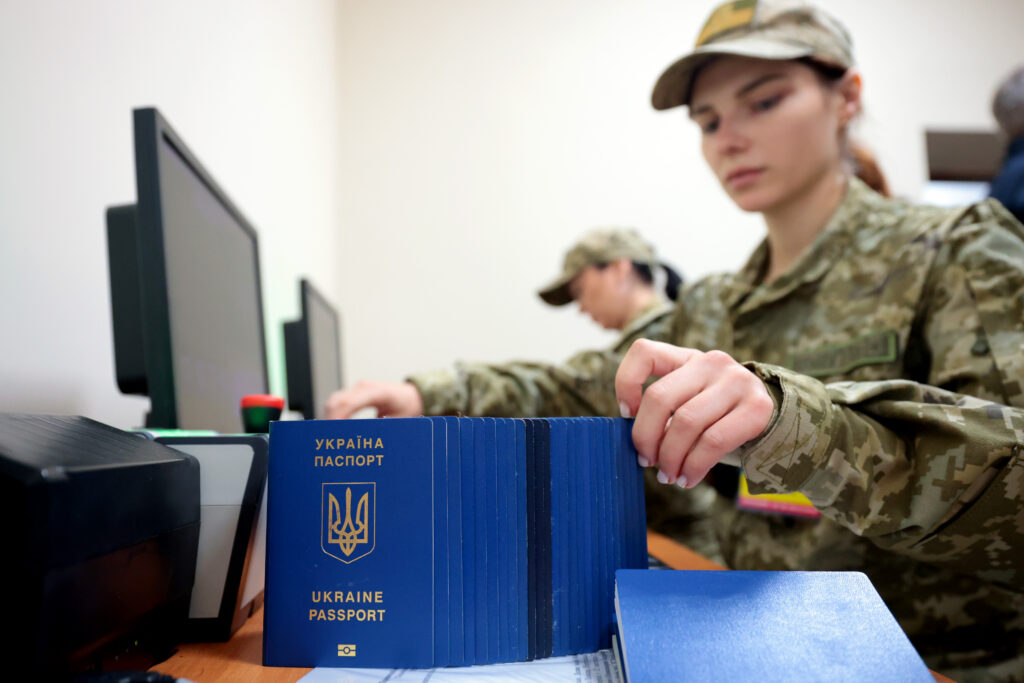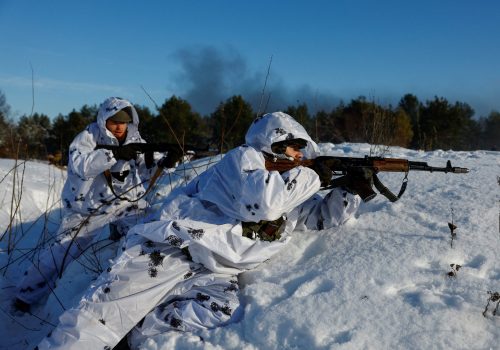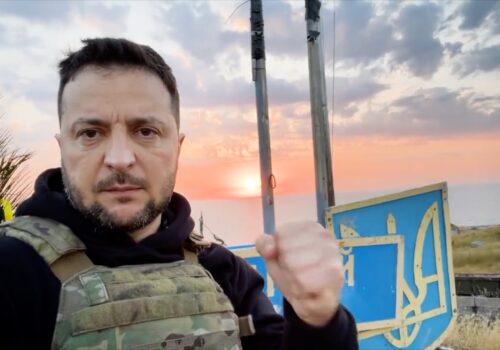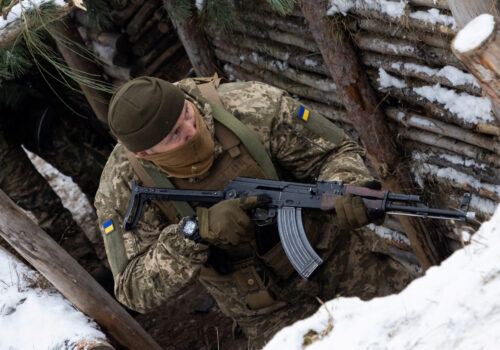Ukrainian President Volodymyr Zelenskyy marked the country’s recent Unity Day holiday on January 22 by thanking Ukrainians around the world for their wartime support and calling for changes to the Ukrainian Constitution that would allow for dual citizenship. Zelenskyy confirmed he was submitting the relevant legislative proposal to the Ukrainian Parliament.
If passed, the bill would allow Ukrainians to hold more than one citizenship. This would have significant implications for Ukraine itself and for the large international Ukrainian diaspora. According to the Ukrainian World Congress, the Ukrainian diaspora currently numbers around 20 million people. Most would potentially be eligible for Ukrainian citizenship. Restrictions on dual citizenship have previously deterred many members of the diaspora from applying for Ukrainian passports.
Zelenskyy’s proposal has been welcomed by many within the Ukrainian diaspora. If adopted, it could help strengthen ties between Ukraine itself and the global Ukrainian community, while granting diaspora members an opportunity to have a greater say in Ukraine’s development. It would make it far easier to visit Ukraine and open a business, purchase property, or otherwise invest in the country, while also providing diaspora Ukrainians with the chance to vote in elections or even run for office themselves.
For existing Ukrainian citizens, acquiring a second passport would potentially open multiple doors in terms of travel, work, and study. Ukrainians have enjoyed visa-free access to the European Union’s Schengen Zone for limited time periods since 2017, and have also benefited from a range of measures to ease border restrictions since the start of Russia’s full-scale invasion. Nevertheless, the prospect of holding an EU, US, or other Western passport would certainly appeal to many.
Stay updated
As the world watches the Russian invasion of Ukraine unfold, UkraineAlert delivers the best Atlantic Council expert insight and analysis on Ukraine twice a week directly to your inbox.
While there is likely to be considerable public support for Zelenskyy’s dual citizenship proposal, any attempt at implementation in today’s wartime environment could prove highly problematic. Crucially, it remains far from clear what the initiative would mean for military service.
With Russia’s full-scale invasion of Ukraine now approaching the two-year mark, most analysts believe the conflict has evolved into a war of attrition. With its far larger population, economy, and industrial base, this places Russia at a considerable advantage. The Russian military has also demonstrated a striking disregard for heavy losses in Ukraine, repeatedly employing so-called “human wave” or “meat assault” tactics to overwhelm Ukrainian defenses by sheer weight of numbers.
Ukraine cannot afford to accept such high casualty rates. The country has a far smaller pool of military-age men to draw from, and has already experienced a major decline in population as a direct result of Russia’s invasion. Current martial law restrictions mean most Ukrainian males eligible for military service are not permitted to exit the country. However, if changes to the Ukrainian Constitution made it possible to apply for a second citizenship, opportunities may arise for Ukrainian citizens to use newly acquired passports in order to leave Ukraine and avoid conscription.
Meanwhile, a relaxation in Ukraine’s dual citizenship restrictions could also potentially result in members of the Ukrainian diaspora who took Ukrainian passports becoming eligible for military service. Any uncertainty over the status of new passport holders with regard to conscription would be likely to deter many from applying.
Eurasia Center events

The issue of military service is currently high on the Ukrainian wartime agenda amid debate over how best to bolster the depleted ranks of the army. A recent proposal by Ukraine’s military chiefs to conscript up to 500,000 civilians has met with a mixed reaction in Kyiv, with Zelenskyy refusing to offer his public support and instead calling for further details before making a decision.
Differences of opinion over the correct approach toward mobilization are believed to have contributed to mounting tensions between Ukraine’s civilian and military leadership. This was widely cited as a contributing factor behind Zelenskyy’s February 8 decision to replace Ukraine’s top general, Valery Zaluzhny. Any constitutional changes to introduce dual citizenship would further complicate an already challenging and politically sensitive situation.
President Zelenskyy’s proposal to enshrine the right to dual citizenship in the Ukrainian Constitution reflects growing awareness of the important role played by the global Ukrainian diaspora. If implemented, it would probably prove a popular measure that would significantly increase the number of Ukrainian passport holders and provide millions more people with a stake in the country’s future. However, there are a number of practical reasons why progress on this issue remains unlikely in the current wartime conditions.
Mark Temnycky is a nonresident fellow at the Atlantic Council’s Eurasia Center.
Further reading
The views expressed in UkraineAlert are solely those of the authors and do not necessarily reflect the views of the Atlantic Council, its staff, or its supporters.

The Eurasia Center’s mission is to enhance transatlantic cooperation in promoting stability, democratic values and prosperity in Eurasia, from Eastern Europe and Turkey in the West to the Caucasus, Russia and Central Asia in the East.
Follow us on social media
and support our work
Image: A border guard arranges Ukrainian passports at the railway border-crossing checkpoint as passengers transfer from a modern diesel train of the Ukrzaliznytsia (Ukrainian Railways) to a train of the Polish SKPL transport company on the maiden trip along the international route connecting Lviv and Warsaw, Rava-Ruska, Lviv Region, western Ukraine. The inaugural journey marks the first railway route between the western Ukrainian city and the Polish capital in 18 years. They train ride starts in Kolomyia, Ivano-Frankivsk Region. In Rava-Ruska, a border town between Ukraine and Poland, passengers will have to switch to a Polish train due to differences in track gauges, from where travellers will continue their trip to Warsaw. (Photo by Alona_Nikolaievych/Ukrinform/Sipa USA)




